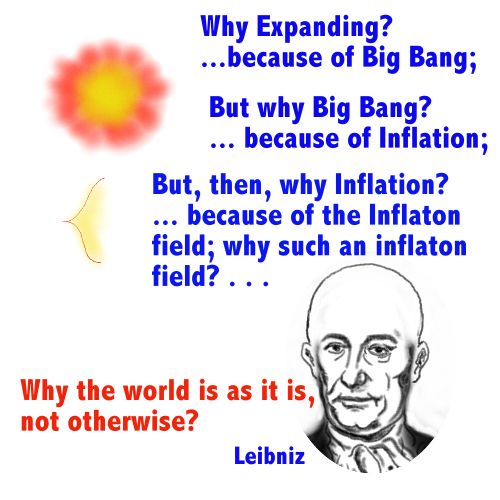
The Principle of Sufficient Reason
Leibniz's Second Letter
Leibniz: "But in order to proceed from mathematics to natural philosophy, another principle is required, as I have observed in Theodicy; I mean the principle of sufficient reason, namely, that nothing happens without a reason why it should be so rather than otherwise."
This principle is somehow ambiguous, as many writers point out. Is it causal, metaphysical, or what? However, despite this ambiguity, this principle is not out of date yet; it is still a live issue in the problems of cosmology and unification. Here is some evidence extracted from a famous contemporary writer.
... if inflationary cosmology is right, our ignorance of why there is an inflaton field, why its potential energy bowl has the right shape for inflation to have ocurred, why there are space and time within which the whole discussion takes place, and, in Leibniz's grandiose phrasing, why there is something rather than nothing. (Greene, 2004, 286; "inflaton field" is a particular type of Higgs field which is responsible for the cosmic inflation.)
Likewise, if we look at a long list of "elementary particles" (including anti-particles) proposed by the current physics, one cannot help wondering: Why so many particles, why such and such a mass for this type, and another for another type? There must be some explanation, there must be some reason! Thus most theoreticians who aim at unification ("the ultimate theory") are still working on the principle of sufficient reason, in an important sense.
References
Greene, Brian (2004) The Fabric of the Cosmos, Allen Lane.
Last modified, April 20, 2005. (c) Soshichi Uchii
